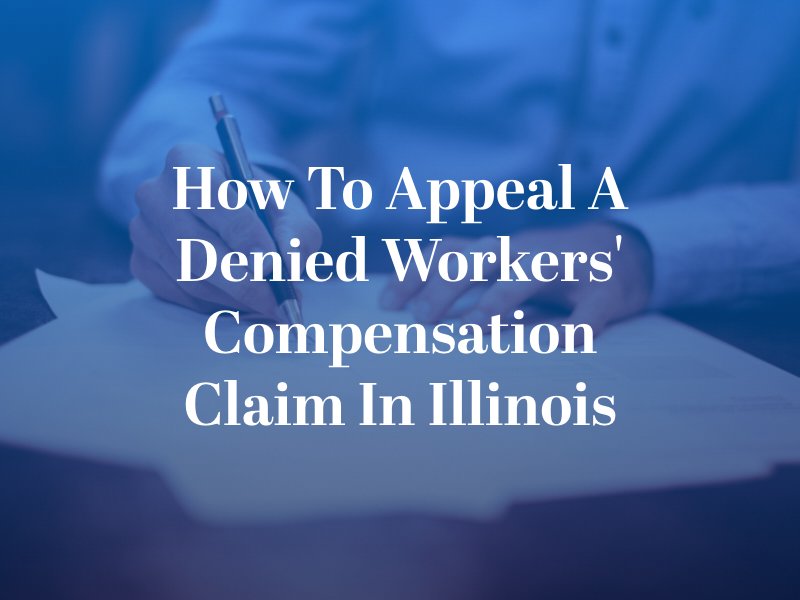How to Appeal a Denied Workers’ Compensation Claim
Learning how to appeal a denied workers’ compensation claim can feel like a lot to take on, especially when you are already dealing with a painful recovery.
A denied claim does not mean the process is over, but it does mean you will need to take your case through the Illinois Workers’ Compensation Commission. If your work injury claim was denied, the appeal process has specific steps and deadlines you will need to follow closely.

How the Workers’ Compensation Appeal Process Works in Illinois
When a workers’ compensation claim is denied, the Illinois Workers’ Compensation Commission (IWCC) steps in to review what happened and decide what comes next. Most appeals begin with a formal request for a hearing, where both sides can present their side of the story. The process unfolds in stages, starting with a review and sometimes moving to court.
Filing a Petition for Review With the IWCC
The appeal process starts by filing a Petition for Review with the IWCC. This form lets the Commission know you are challenging the decision and want the case looked at more closely. You will need to include copies of the original decision, supporting documents, and any relevant medical or wage records.
In most cases, the IWCC assigns the appeal to a panel of commissioners, who then review the materials and may schedule oral arguments. This stage can take several weeks or even a few months depending on the complexity of the case.
Escalating the Claim to Circuit or Appellate Court
If the IWCC does not rule in your favor, you can take the appeal further. The next step involves filing a review in the local circuit court, where a judge will examine how the IWCC handled the case. If necessary, it can be appealed again to the Illinois Appellate Court. These steps are less common but may be necessary when the dispute involves legal errors or unresolved facts that need a fresh look.
Situations That May Increase the Risk of a Denied Claim
Not every denied workers’ compensation claim comes from dishonesty or mistakes. Sometimes denials happen because of paperwork gaps, employer pushback, or how the injury is described. Below are examples of situations where getting a claim approved can be more challenging:
- Late reporting
- Electrical accidents on private property
- Non-specific injuries
- Alleged pre-existing conditions
- Lack of witness reports
- Construction accidents during contract work
- Incomplete medical documentation
Illinois Workers’ Compensation Act 820 ILCS 305/6(c) requires that you notify your employer and file within a certain timeframe, which can become a problem if the injury is not reported quickly.
For more complex claims, especially those involving construction accidents or electrical accidents, there may be questions about whether the employer or another party is responsible. If your case reaches the Illinois Workers’ Compensation Commission and does not resolve in your favor, 820 ILCS 305/19(f) gives you the right to request a review in circuit court.
What Happens After You Submit an Appeal
Once a formal appeal is filed, the Illinois Workers’ Compensation Commission or the court will take a fresh look at your case. This stage often includes follow-up hearings, updated medical records, and sometimes second opinions from independent doctors. The process can take time, but it gives you another chance to show why the original denial should be reversed.
Gathering Supplemental Evidence to Support the Case
After an appeal is submitted, claimants often gather new or more detailed records to clarify what happened. This may include updated medical evaluations, new witness statements, job-site photographs, or expert opinions about work-related conditions. Anything that helps show the injury is real, work-related, and within policy coverage can help move the case forward.
Review Timelines and What to Expect During the Wait
The time it takes to resolve an appeal varies, but it is normal to wait several weeks or even a few months, depending on how complicated the case is.
During that time, you may hear from the IWCC about next steps or requests for more information. Illinois Workers’ Compensation Act 820 ILCS 305/16 outlines the arbitration procedures and general timelines the IWCC follows when reviewing disputed claims, so both sides understand how the process moves forward.
